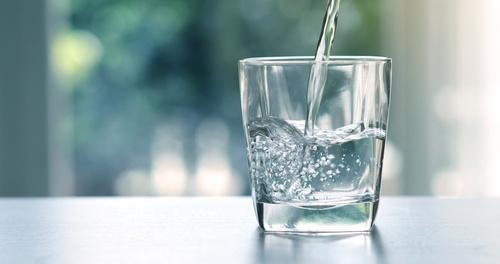Beauty & Vitality
Our appearance is a reflection of our inner well-being.
Natural beauty from the inside out
Do you value a vital, fresh appearance, do you want a constant feel-good weight, radiant skin, shiny hair and healthy nails?
Then you should not only pay the necessary attention to your body, but also to your mind and your health. Because healthy beauty literally comes from within.
For your attractive and healthy appearance, nutrition in particular plays a decisive role. Anyone who consciously eats and pays attention to the quality of food has already taken the first step. But your rhythm of life and your own appreciation also have an tremendous influence on your well-being. Allow yourself moments of pleasure for body and soul and treat yourself with care. Because a fulfilled and happy life also requires a positive attitude.
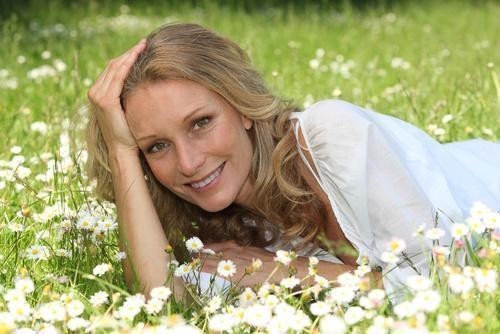
Easy tips for improved quality of life
- A balanced diet with whole-grain and dairy products, fruit and vegetables and sufficient water intake is the basis for vitality, health and a radiant appearance.
- Vegetable oils, nuts, seeds and fatty fish are rich in polyunsaturated fatty acids. They ensure a vital, smooth skin and protect it from dehydration.
- Blueberries, raspberries, elderberries, currants, eggplants, spinach and chard are particularly rich in plant antioxidants. These protect the skin from free radicals, which are formed by environmental pollution, nicotine or by extensive exposure to the sun.
- The right lifestyle with adequate rest and sleep supports all regeneration processes in the body and leads to improved well-being.
- Indulge on some wellness in your own bathroom: with an essential oil bath you will appeal to all senses after a strenuous day and pamper body, soul and spirit.
Further tips for a better quality of life
- Alternating hot-cold showers stimulate your blood circulation and metabolism and are particularly suitable if you are in the menopause.
- A body scrub removes dead skin particles and makes the skin smooth and soft. The base should not be washed off after the treatment to allow its full effect to unfold.
- If your skin is very dry or cracked or if you suffer from skin problems such as dermatitis or psoriasis, we recommend base baths for relaxation and purification. The skin's channel system is opened gently and the natural function of acid and toxin elimination is supported.
- Ayurvedic treatment methods can help reduce stress and gain energy for everyday life. Asian science aims to bring people into harmony with nature and their inner being.
Ayurveda - a holistic relaxation
Stress and constant daily pressures in everyday life can make you mentally and physically drained and lead to increased susceptibility to illness and dis-ease in your body. With Ayurveda, the Indian science of longevity, you focus your attention on inner balance and thus on one of the most important foundations for a healthy life.
Man consists of the whole self i.e. body and soul. This belief is the essence of the 5,000 year-old Ayurvedic art of healing. When we are not living in harmony with nature and our inner being, illness will soon result. The reason for this is based on the importance of balance between the "doshas" or three life energies. With Ayurvedic treatment methods, the goal is to support and harmonise “Vata”, “Pitta” and “Kapha” once again.
The individual treatment can include, for example, yoga, meditation, herbal medicine, nutrition therapy, massages and oil applications.
Fine tune your intuition
Fortunately, you don’t have to wait until you're not well to try Ayurveda! The art of healing has long since found its way into the world of wellness. Ayurvedic wellness principles are easily implemented in your daily routine. Paying attention to your physical and mental well-being with regular yoga and meditation, oil treatments, massages, optimum hydration and healthy nutrient-rich dietary habits can have immediate and long lasting results for your health. Taking the time for genuine self care also allows you to learn a lot about yourself and what is important to you and your family.
Perhaps you’ll then ask yourself, “Which activities, food and relationships are not good for me?” You will recognize your personal stress factors and become aware of the physical and emotional signs of overwork and burnout. On this basis, integrating new, healthy habits into everyday life can rapidly improve your quality of life. The best part is the simplicity of implementing new healthyhabits. Simply because you start with what's important for you.
How to integrate Ayurveda into your everyday life:
- Ensure that your daily routine is based on supportive and healthy habits. For example, get up early and always at the same time even on weekends!
- Start your day with a cup of hot water followed by yoga or meditation.
- During the day, make sure you have regular meals to ensure optimum nourishment of essential nutrients.
- Relaxation is just as much a part of life as work and exercise. Plan fixed breaks every day or regular walks. Ensure balanced and regular sleep.
- Your body needs movement to stay supple and youthful. Daily yoga exercises or pilates, for example, will keep you healthy for a long life.
- Treat yourself regularly to an Ayurvedic relaxation treatment. The Shirodara forehead shower, for example, helps to relax the mind and soul. A jet of warm sesame oil is poured onto the forehead for up to 45 minutes. The continuous flow triggers calming impulses on the nerve cells and relieves tension on the brain’s membranes, brain nerves and the spinal column.
- The Abhyanga massage (“Loving Hands”) also helps to reduce stress. The four-handed oil massage is carried out with healing herbal oils, which also dissolve skin impurities in deep-seated layers of tissue. The Abhyanga massage harmonises all three doshas, helps to release waste products and balances feeling of tension.
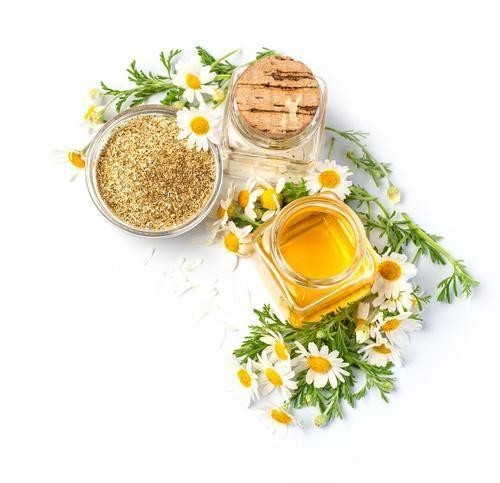
Tips for healthy skin
Our skin is incredible. It not only receives countless stresses from the outside world, but also reveals feelings and moods from your inner world. We believe that the old saying that the "eyes are a window of our soul" could easily be extended to say the "skin is a mirror to our inner health". This makes it all the more important that we take good care of it, e.g. through baths and a healthy diet.
As the largest body organ, our skin takes over vital functions. It protects against sun, cold, radiation, dehydration and overheating. It is a respiratory and excretory organ in equal measure. It even recognizes and destroys harmful micro-organisms that penetrate into its outer layer – and it often indicates what we’re feeling inside. We become “red with anger” or “pale with fright”, sweat with fear and excitement or get goose bumps or shivers in emotional situations.
In the case of neurodermatitis or psoriasis, psychological stress can lead to the outbreak or to a further relapse. Our age is easily reflected in our skin with many unfortunately experiencing early skin ageing due to poor health. However, our skin is clear and radiant when we are relaxed, well rested and well nourished.
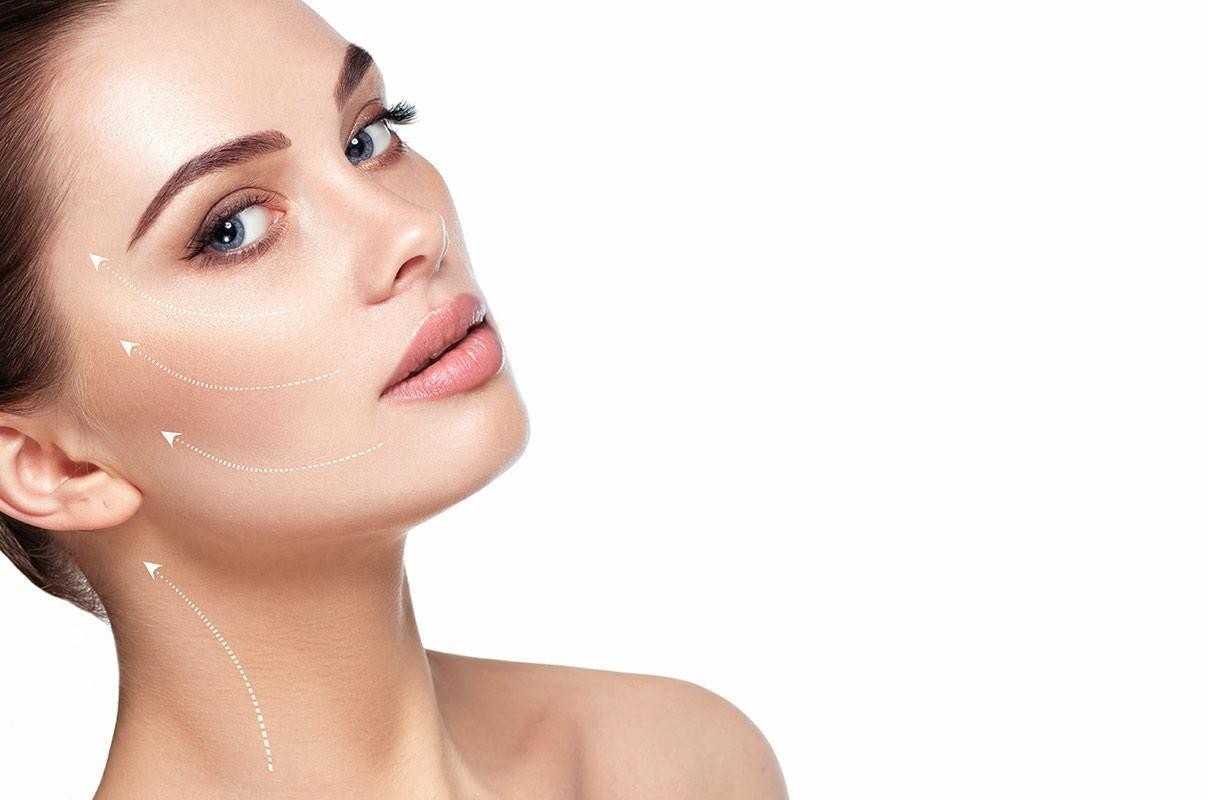
“Beauty comes from within” – how to help your skin look good
- In order to fend off harmful external influences and protect itself against infections, allergies, irritation and dehydration the acid mantel of your skin needs to be healthy and robust. So please don’t clean your skin with water alone, because it temporarily dries out the various layers and disturbs the barrier function. It’s better to include a oil-replenishing cleanser to the water.
- Create a natural cleanser. Add two tablespoons of olive oil or flax seed oil to a cup of milk, then simply add the mixture to the water at body temperature. Gently massage into the skin and carefully dab dry afterwards – do not rub!
- Moisturising your skin is essential. Make sure, however, that everything you use has a neutral to slightly acid pH value of approx. 5.5 to 5.7 – this will keep the protective acid mantle intact. Good skin care doesn’t have to be expensive, but the ingredients should be age-appropriate.
- Avoid too much UV light and make sure you apply a day cream with sun protection. UV light stresses the skin and causes it to age prematurely – and it also may increase the risk of skin cancer. You can also eat natural sun protection! This is where the secondary plant substances, such as those found in carrots and tomatoes, can help. Consistency is important. For at least 14 days, eat two tablespoons of tomato paste with a few drops of olive oil on your rye bread. This boosts your natural skin protection equivalent to using external sun protection of factor 3 to 4.
Healthy skin through healthy nutrition
- Healthy nutrition is medicine for beautiful skin. Eat fresh fruit and vegetables with deep rich colours: Blueberries, raspberries, elderberries, currants, eggplants, spinach and chard are particularly rich in plant antioxidants and protect the skin from free radicals.
- The right oils and fats, such as linseed oil, protect against your skin from drying out thanks to their poly-unsaturated fatty acids.
- Food rich in vitamin A (including many types of fruit & vegetables, egg yolk and oily fish like mackerel and salmon), increases skin thickness and improves the skin structure.
- Vitamin E prevents age spots and reduces the loss of moisture in the skin. It is particularly found in grains, nuts and vegetable oils such as wheat germ oil and sunflower seed oil.
- And, as always, drink optimal levels of water for you! Water is the elixir of the skin.
- It's no exageration to say that good sleep is the be-all and end-all for a healthy glow. Sufficient rest and recovery supports all the regeneration processes in your body and skin.
- Treat yourself to an overall healthy lifestyle! Smoking, excessive alcohol consumption, carrying too much weight, lack of sleep, stress and the wrong nutrition play an enormous role (up to 40 percent!) in how quickly your skin ages.
- And don’t forget that your skin loves exercise in fresh clean air!
Wellness at home
Wellness doesn’t have to be expensive. Design your own personal feel-good program at home. Whether it’s daily short rituals or an extensive day of pampering – let yourself be inspired by our ideas. How about an aromatherapy bath, for example?
Transport yourself to a relaxing nirvana after a stressful day with your sense of smell – the most mysterious of all our senses. The signals taken in through the nose immediately reaches the brain regions for memory and emotions – so our sense of smell has a direct effect on our emotional life.
Since we have an “olfactory memory”, a scent can influence our mood and bring long-forgotten experiences back to mind. Fragrances that bring back relaxing and pleasing memories positively influence our immune system and our psyche.
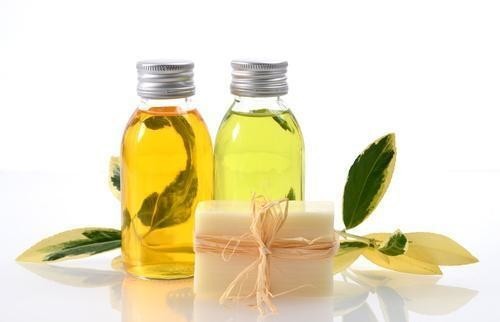
Aromatic oils are easy to use
Aromatherapy oils are particularly well suited for your home wellness routine. They are based on aromatic oils, the fragrant substances of plants, and are obtained from flowers, leaves, pine needles, stems, resins, fruits, fruit peels, tropical grasses, roots and seeds.
How it works:
- If you don’t have an aroma lamp, just put a few drops of aromatic oils in a bowl of water and place it on a heater to evaporate. Be careful to ensure it can't spill on any open cables.
- You can also add a few drops of different plant aromas to conjure up true fragrance compositions for your personal massage oil.
- Aroma baths are particularly relaxing. The essences are not only absorbed through the nose, but also through the skin.
Further suggestions for your wellness program at home
- Start with an indulgent footbath, followed by a manicure and pedicure – a lovely program for a cosy Sunday afternoon!
- Take your time and pamper yourself. You’re tired? Then prioritize your sleep. Would you like to indulge yourself with a great book? Then do it – best of all on your comfy sofa. Would you like to treat yourself with some culinary delights? Take plenty of time for shopping and preparing the food. You just need some peace & quiet? Then turn off your TV, put your phone away and relax.
- Wellness for two is more your thing? Mutual oil massages are a great way to connect with loved ones.
Balanced eating is fun!
A balanced diet is the basis for beauty and well-being. What you eat is so important – but it's also vital to consider how you eat too.
Our tips for healthy nutrition
- Vegetable based produce should be a constant addition to your meals. This is because they contain many essential vitamins, minerals, fibre and secondary plant substances. A good guideline is 8-10 servings of vegetables and fruit a day.
- Always buy as fresh as possible. Always aim to eat your vegetables only likely cooked or raw in order to protect and preserve the nutrients and the natural taste.
- Include at least 30g (1 oz) of fiber daily, preferably from whole grain products. Insoluble fiber play an important role for our metabolism, e.g. they lower the blood fat values and help the body to eliminate cholesterol.
- Meat, on the other hand, should only be consumed in the quantities for you. See your Metabolic Balance Nutrition plan.
- When eaten once or twice a week, fish provides an excellent source of healthy omega-3 fatty acids, high-quality protein, iodine and selenium.

More tips for a healthy diet
- It's all about balance! Fat is an essential macronutrient for our health but too much fat is unhealthy and can lead to obesity and related diseases. Aim for between 60-80g a day. Please note that like sugar, fat is often hidden in meat & dairy products, pastries and fast food!
- Above all, eat healthy fats such as olive, wheat germ and flax seed oil. Unsaturated fatty acids are especially found in avocados, nuts and fatty fish such as mackerel and salmon.
- Keep an eye out for hidden sugars and don't add sugar to cooking unless you really have to.
- Use salt in the right amounts. Salt is an vital addition for health but it's all about balance. It's the hidden salt that should be avoided. Naturally salting freshly prepared food makes your food tasty and provides you with essential electrolytes your body needs.
- Ensure herbs and spices are an essential part of your daily meals. They are rich in health-giving micronutrients and make meals tasty too.
- Drink plenty of clean pure water – aim for about two liters of fluid daily. Dinking water is really the best to move toxins out of your body.
- And the best thing to remember is that healthy vibrant colorful food is fun! Take your time and enjoy your meals. Eating well each day is like giving yourself an amazing gift everyday! Love yourself enough to always fuel your body well.
What to do with skin issues?
What we eat and drink has a significance influence on the health of our skin. Acne, psoriasis and other disorders can arise or worsten with poor eating habits. Even small changes can make an enormous difference.
As we've already mentioned, your skin is a mirror for the health of your body. So many skin conditions are often the result of imbalance and nutritional metabolic disorders.
Acne is a great example of this. Acne is one of the most common skin diseases worldwide. Nutrition researchers have shown that skin problems are relatively rare in primitive tribes and only when these tribes move away from their traditional diets does the incidence increase. Too much dairy can also result in acne in young people.
The cause of this linked to the fluctuations in hormone levels. Milk is a real hormone cocktail and contains precursor molecules of testosterone, a male sex hormone which is significantly involved in the development of acne. Milk also contains the growth factor IGF-1, which is similar to insulin and stimulates testosterone production.
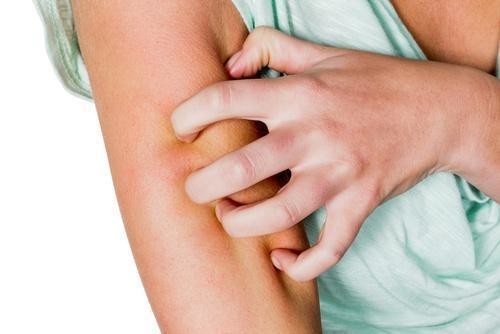
Help your skin with healthy nutrition
Address your diet – in the case of psoriasis, a chronic inflammatory skin disease, improving food choices has been shown to have a significantly positive influence. The causes of psoriasis can be genetic or due to environmental factors such as stress and medication. Nutrition aligned to illness supports and stabilizes your body’s own defenses - healing the skin and mucous membranes more efficiently.
Therapeutic fasting can have anti-inflammatory effects and relieve itching and pain. One study showed that after a four-week calorie-reduced diet, the skin problems of the test subjects decreased significantly.
Eat and drink well! If you eat a balanced diet – whole grain and wholesome protein together with enough fruit and vegetables – and if you drink enough water, you’re giving your skin the optimal nutrient supply for health.
Remember, fats play an essential role in health so don’t avoid fat! Foods rich in polyunsaturated fatty acids ensure cell walls are flexible and supple. They are then able to absorb nutrients more easily and release metabolic waste products, i.e., detox efficiently. Thus, include high-quality oils, nuts, seeds and oily fish.
Bon Appétit!
If possible, eat natural foods: Study subjects with chronic urticaria (itchy skin or “hives”), for example, trialed a diet with no additives such as preservatives and coloring. They also avoided hyper allergenic foods such as pineapple, strawberries and apricots. Within three weeks, 70 % of patients were symptom-free.
Be patient and consistent. Whether it’s due to illness or for cosmetic reasons – if you want to improve your skin and that’s the reason for changing your diet - a change in your skin won’t happen overnight. It’s an ongoing project that is rewarded with patience. So, stay tuned – it’s worth investing in a healthy diet.
Treat yourself to a alkaline bath
An alkaline bath is pure relaxation and cleansing – and it’s also highly recommended for skin problems. You can get the appropriate bath salts online or at health food stores.
- A bath with alkaline bath salts gently opens the pores of your skin. It also supports the natural function of your skin in eliminating acids and toxins.
- Alkaline baths are suitable for all skin types and are particularly recommended for very dry and cracked skin. They also help with skin problems such as neurodermatitis and psoriasis.
- Please note! Your alkaline bath should have a pH of over 8. Our blood has a pH value of 7.4 so the slightly higher pH value in the bath water allows osmosis to kick in. Make sure you bathe longer than 30 minutes in an alkaline bath of ideally pH 8.5 for the natural cleansing effects of the alkaline salts to take effect.
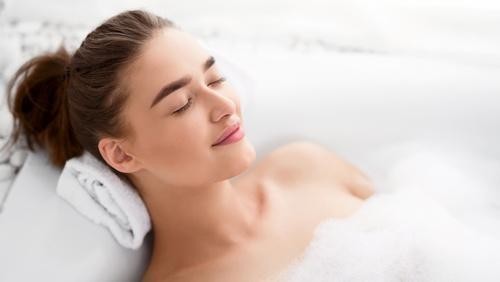
Suggestions for even more effectiveness and enjoyment
- The water temperature must not be too hot – aim to keep it about body temperature.
- Take your time! The detoxifying effect only starts after around 30 minutes and is at its greatest after 90 minutes.
- Brush applications increase the effect! Rub your body every ten minutes with a massage glove in the direction of the lymph flow. Always start a brush massage with the blade moving away from your heart.
- Don’t shower after your alkaline bath – the alkaline minerals are protective and moisturizing for your skin.
- After the bath, wrap yourself in warm towels and relax for at least 30 minutes.
- You can also treat yourself to a stimulating shower exfoliating treatment. First shower with alternating warm and cold water. Then using alkaline bathing salts gently massage the moist skin until the minerals have completely dissolved. This stimulates your circulation, removes dead skin particles and makes your skin smooth and soft. Best result is achieved if you do not shower off afterwards.
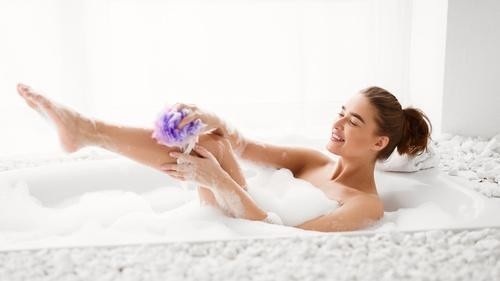
Indulge and nurture all your senses
Seeing, hearing, smelling, tasting, feeling – how conscious are you of your five core senses in everyday life? Isn't it time to appreciate and do something good for your eyes and ears too?
Our vision is possibly our most important sensory perception. We register up to 10,000 individual optical stimuli within one second. Our brain summarizes and interprets them in a blink of the eye. No wonder we often feel visually overwhelmed or exhausted by the end of the day.
Hearing is a constantly alert background sense. The ears cannot be closed, so they are always "on"! This highly sensitive key organ can process 100,000 pieces of information per second, but only a maximum of 30 reach our consciousness. Even in our dreamworld, our ears are still alert. They protect and warn us when our eyes cannot see.

Relaxing exercise for the eyes - palming
Palming creates intensive relaxation for your eyes – give it a go!
- Rub your palms against each other to warm them. Form both hands into a shell and cover your eyes with the palms of your hands, without touching the eyelids.
- Now close your eyes and enjoy the darkness. Breathe deeply into this relaxation pose.
- Throughout the exercise, breathe in slowly and evenly through the nose and out through slightly open lips.
- When you are ready, first take your hands gently away and rest them in your lap. Then gradually open your eyes, as if in slow motion.
Relaxation exercise for the ears – an oasis of silence
Treat your stressed ears to a frequent rest!
- Turn off all gadgets and switch your phone to silent. Preferably put it in another room!
- Lie on a comfortable blanket on your back. Cover your ears with earplugs or place a cozy pillow or cushion on either side of your head to cover both ears.
- Slowly take five deep breaths. Listen to your inner self. Can you hear your “inner sound or rhythm”?
- Put your hands on your chest. Now breathe deeply in and out – slowly – five times. On your last exhalation, release all your tension from the chest. Repeat the same with your stomach and pelvic.
- Then place your hands next to your body. Listen to your inner sound once again – how has it changed?
Smell, taste, feel – a sensuous exercise
Have you tried our relaxation tips for eyes and ears? Here are our feel-good tips for your sense of smell, taste and touch.
The sense of smell and taste are closely linked. Did you know that your nose delivers about 80 percent of your taste information? It can perceive around 10,000 different smells. Our taste buds, each with 50 to 150 sensory cells, are located on the tongue. They can distinguish between sweet, sour, salty and bitter tastes.
However, artificial flavors, overly flavored food, medication, nutrient deficiencies, illnesses and ageing tend lessen our sense of taste. Many people readily eat and accept often tasteless processed food - simply because they have forgotten what food is actually supposed to taste like! The good news is – taste can be revived and (re-)trained!
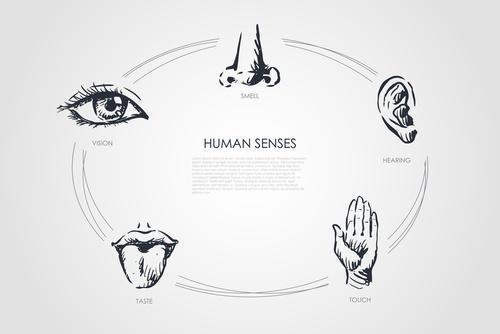
Tips for an excellent sense of taste
- Avoid ready meals and fast food if possible.
- Be curious and bring out your inner adventurous nature. Whenever possible try new and different foods or combinations.
- Make sure you have enough time to eat. Look forward even to creating your food and meals!
- Be mindful – always eat conscientiously, without letting yourself be distracted by your phone, television, the radio, reading, or work.
- Eat slowly and ‘feel’ the taste. Close your eyes from time to time and concentrate on the food in your mouth. How are you experiencing your meal now?
- If you think you have a poor sense of taste talk to your coach about having the right supplement such as a good multinutrient to boost your levels of nutrients such as zinc which are vital for a good sense of taste.
Feeling and touching belong to our primal experiences – before we were born, we oriented ourselves on these senses in the womb long before we could hear or see.
When we were babies and toddlers, we used our hands and mouths to explore the world.
Is something angular or round, smooth or rough, cold or warm, wet or dry, hard, fluffy or soft? We learned to distinguish all this with these senses and in the truest sense of the word, to really start to understand our world.
Using all our senses when we are eating really can open up a whole new way of enjoying our meals and getting the best possible nutrition from our food.
Sensitize your sense of touch – go barefoot
One unique way to intensify the sense of touch is to regularly go barefoot. Many health resorts and communities around the world now offer barefoot footpaths and hiking trails.
The evidence shows that by sensing various materials (pebbles, sand, grass etc) under the soles of your feet, intense sensations are experienced which encourage soothing relaxation and healthy grounding.
Walking barefoot on the beach or in lush grass is a wonderful way to relax at the weekends.
